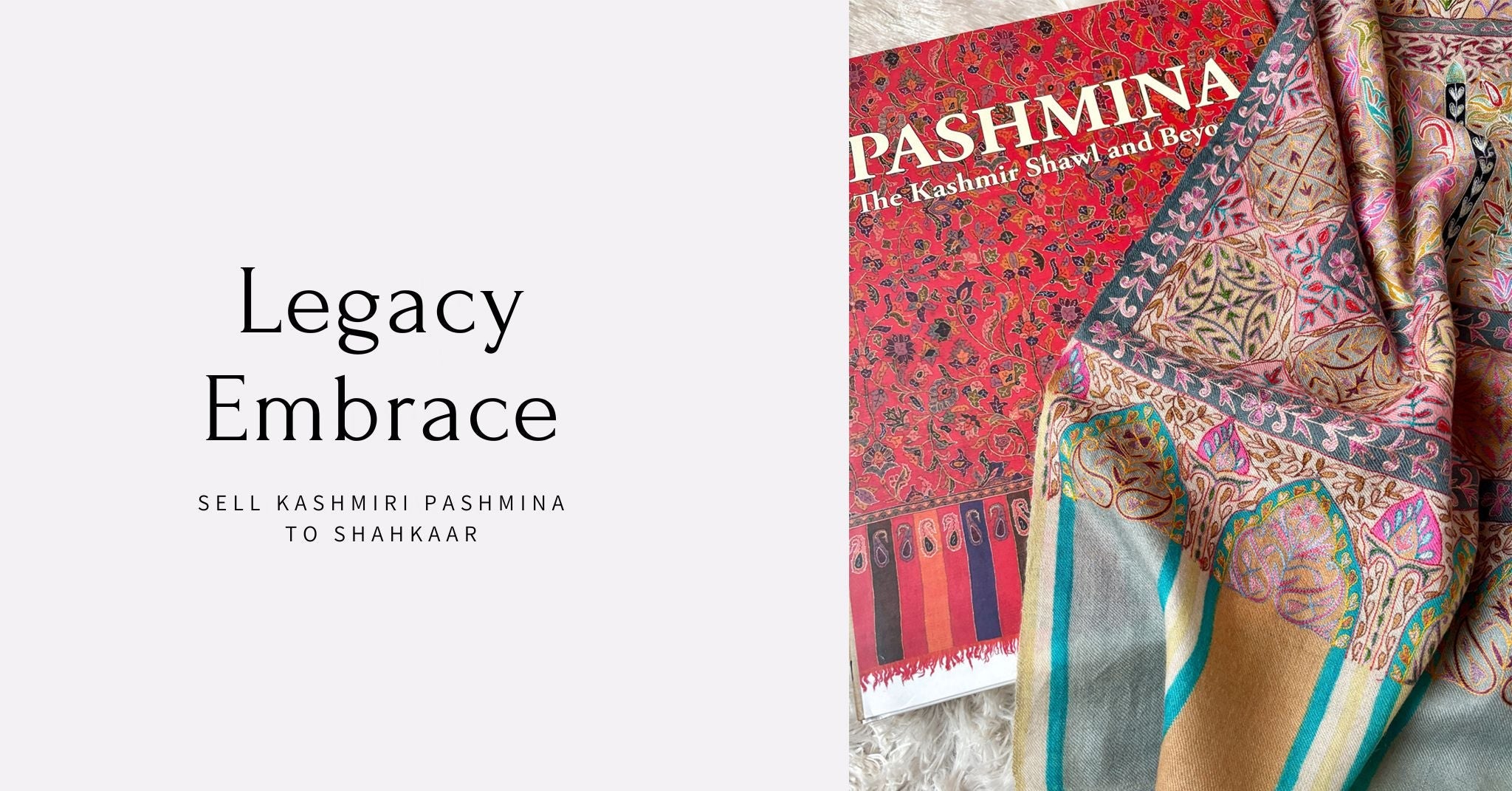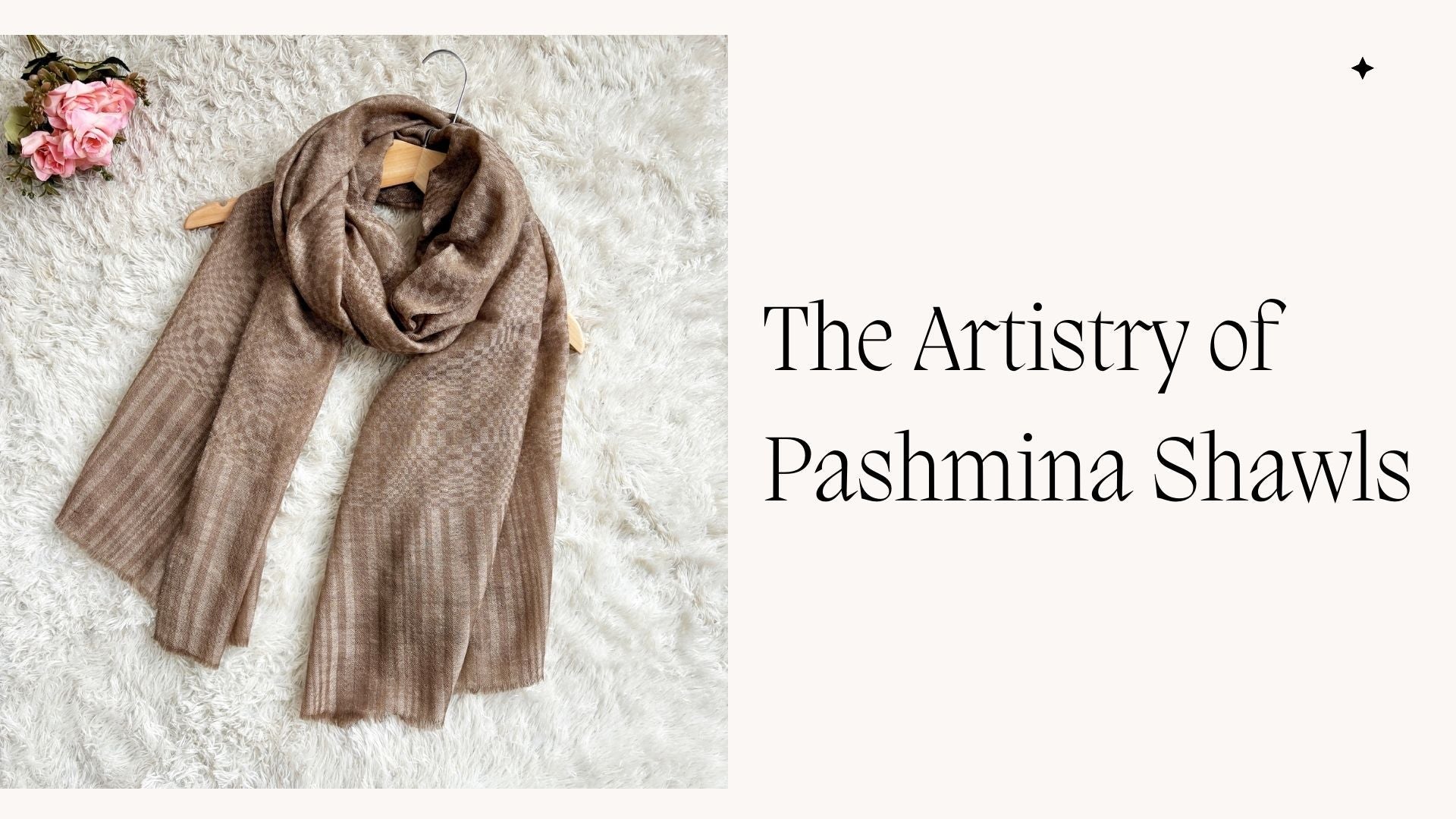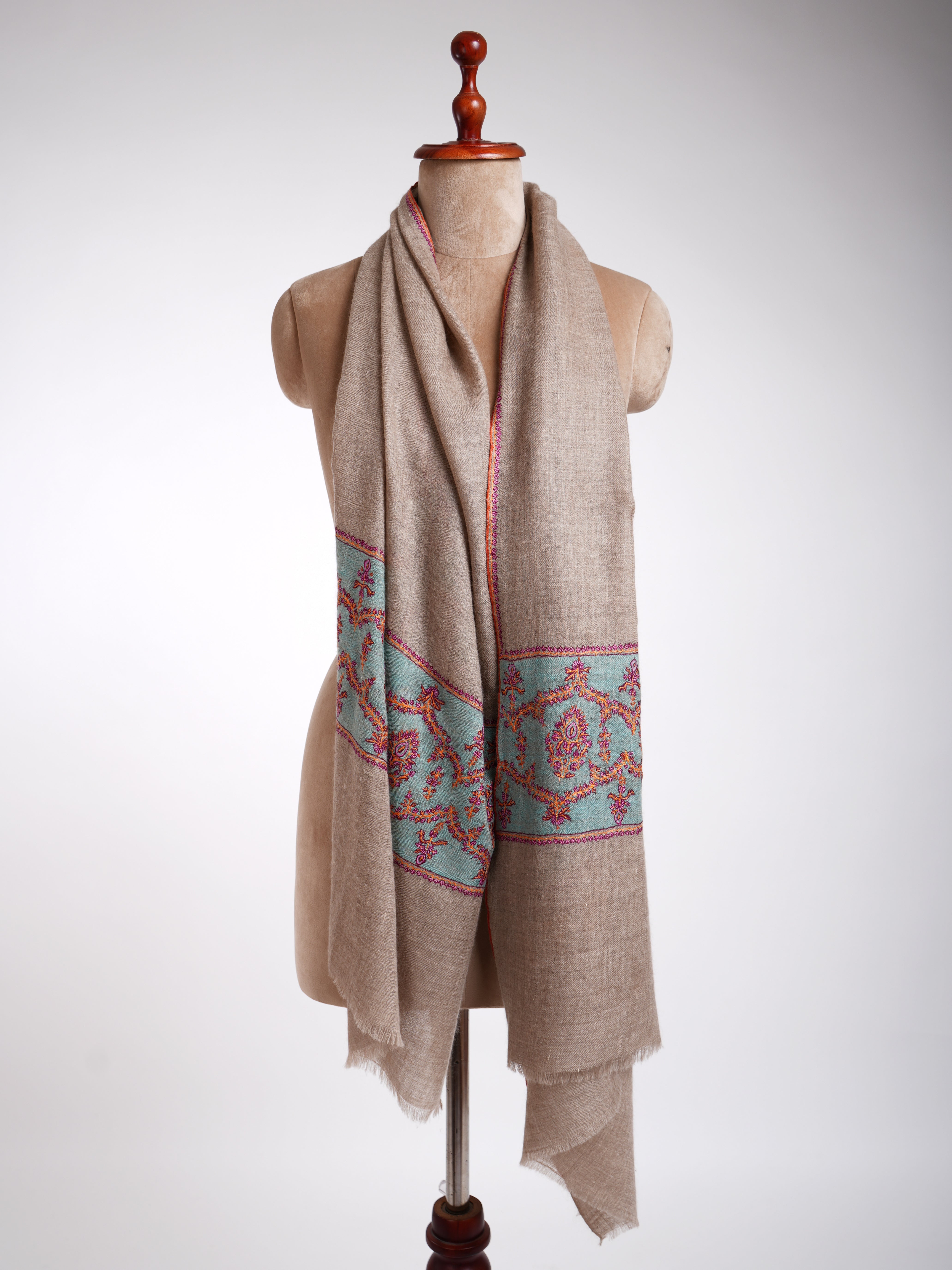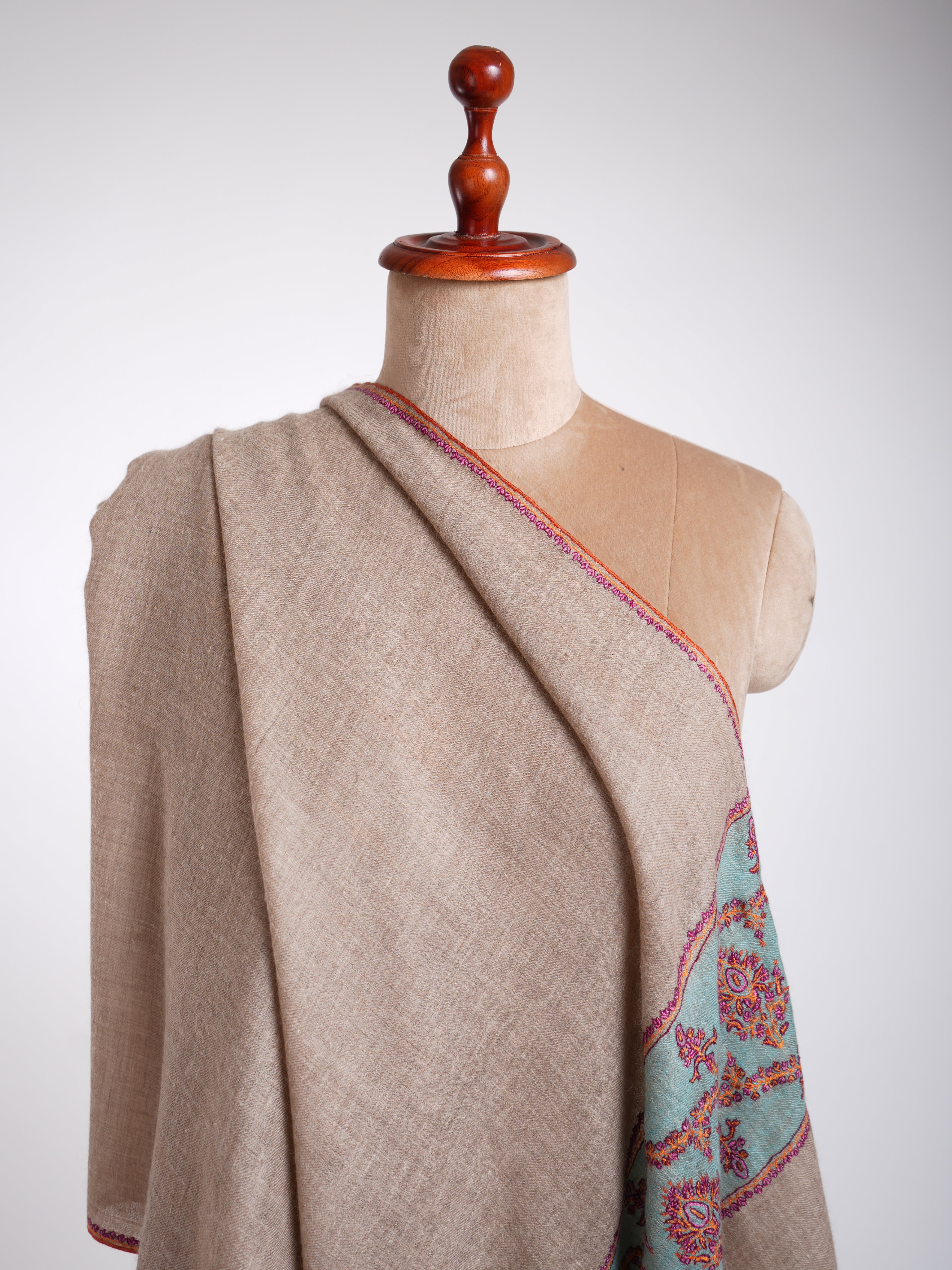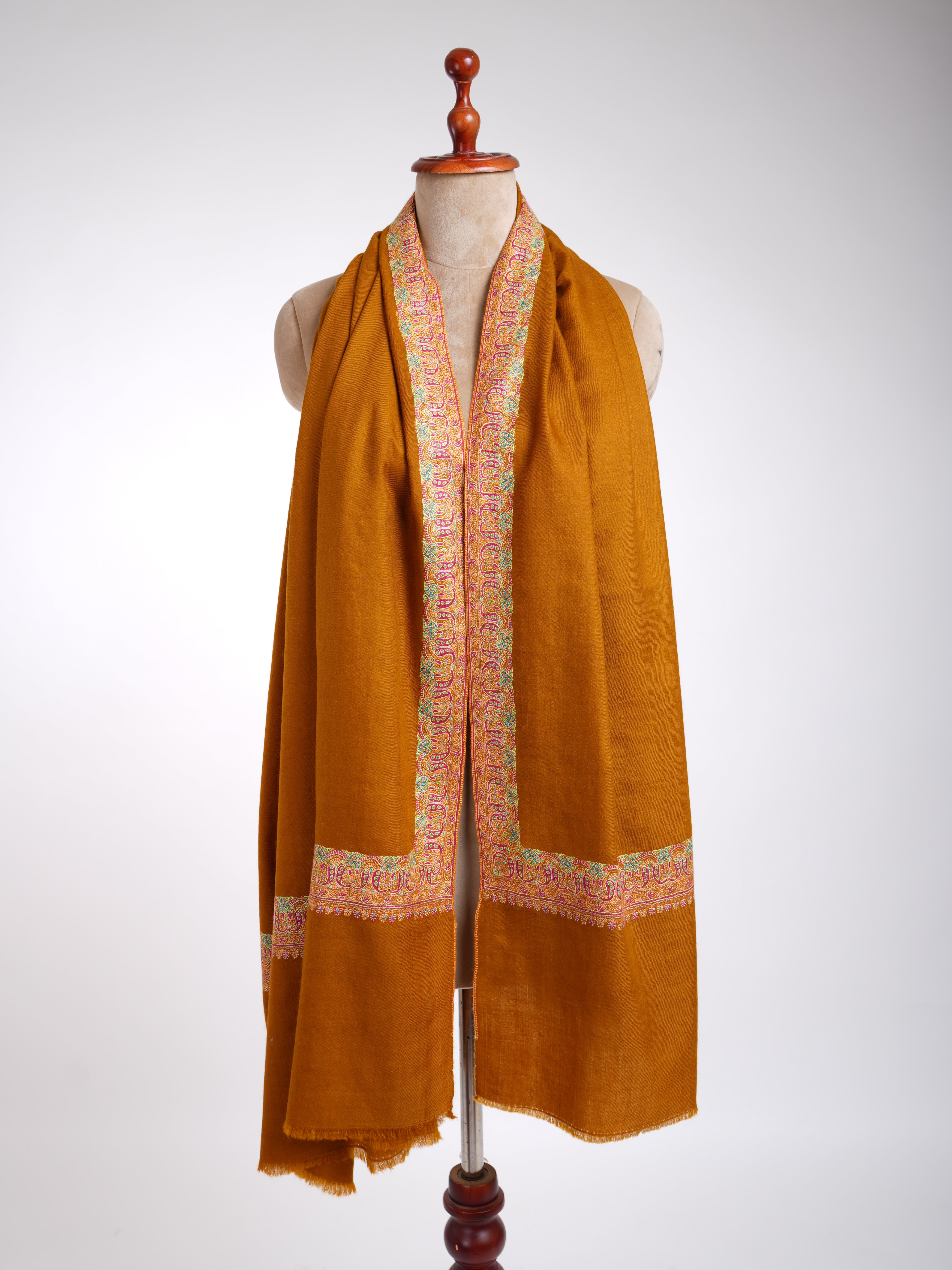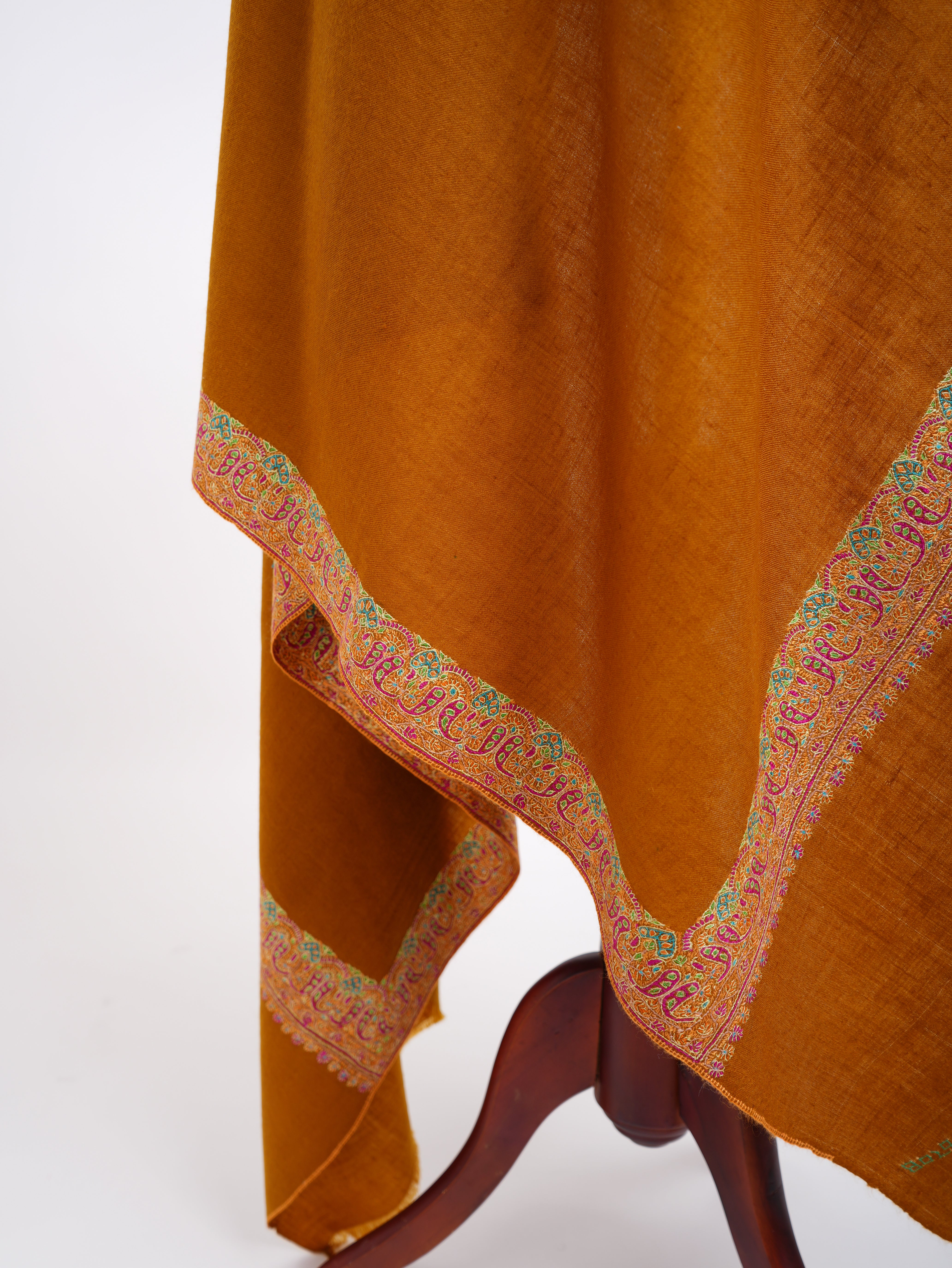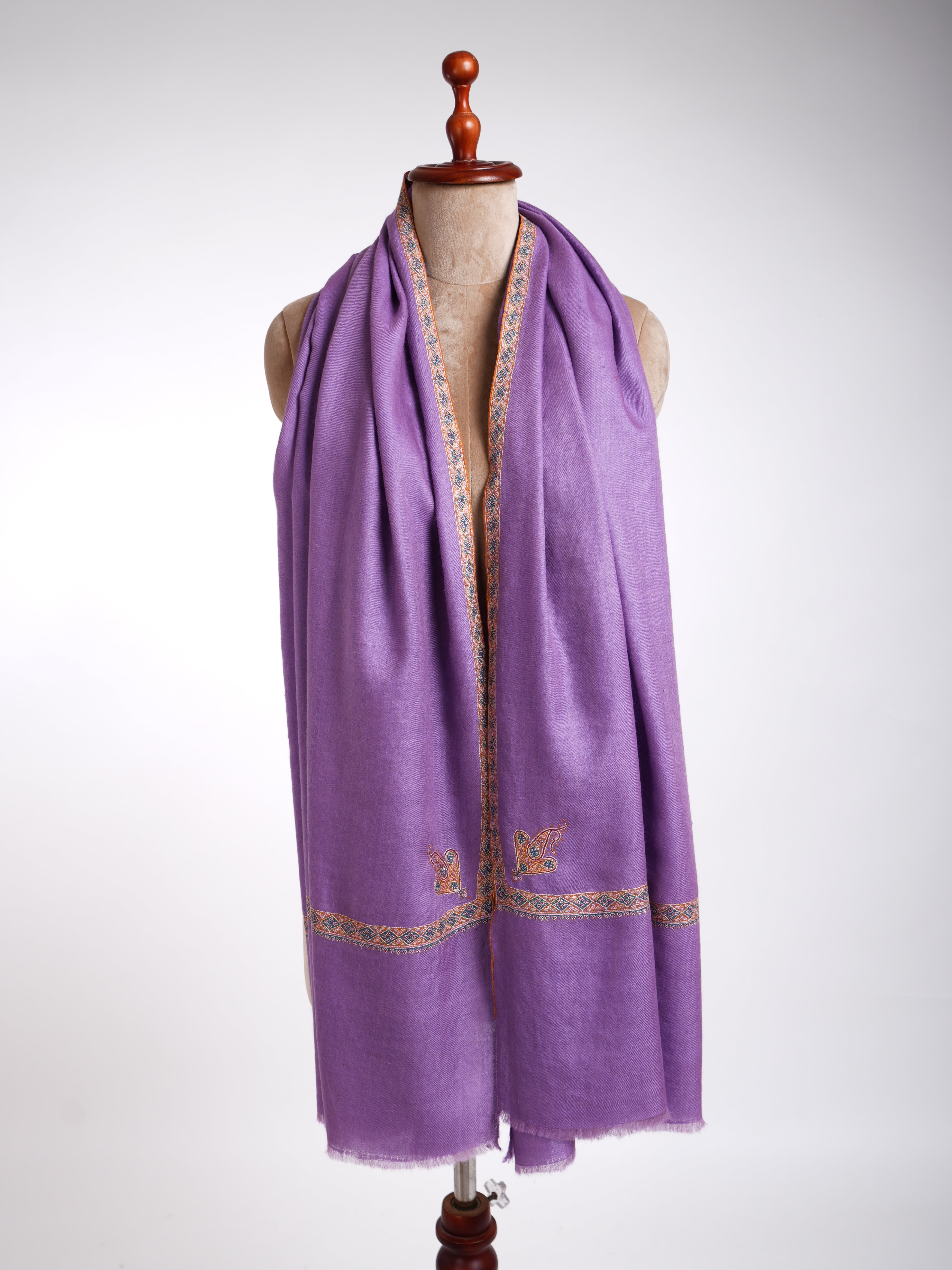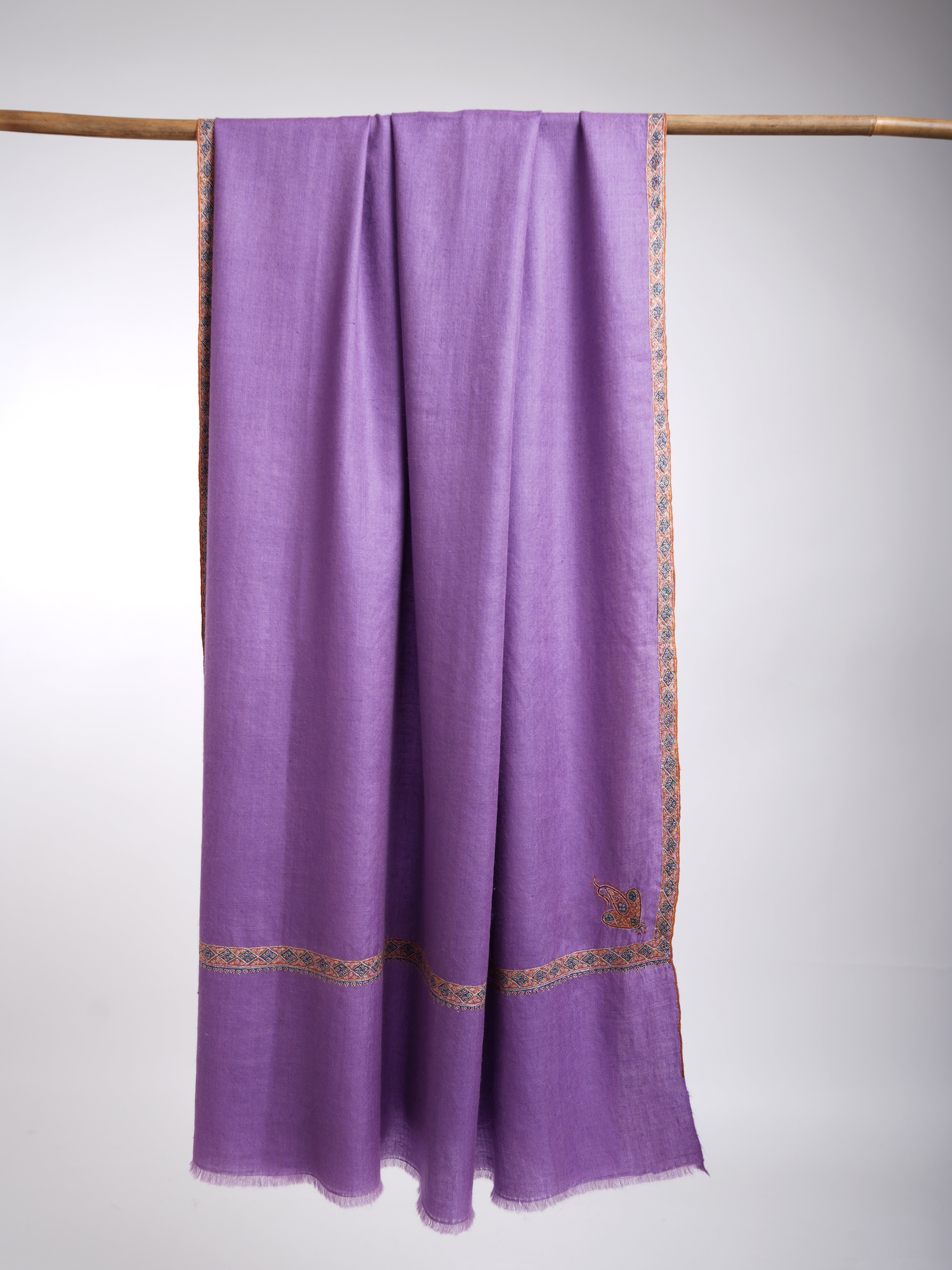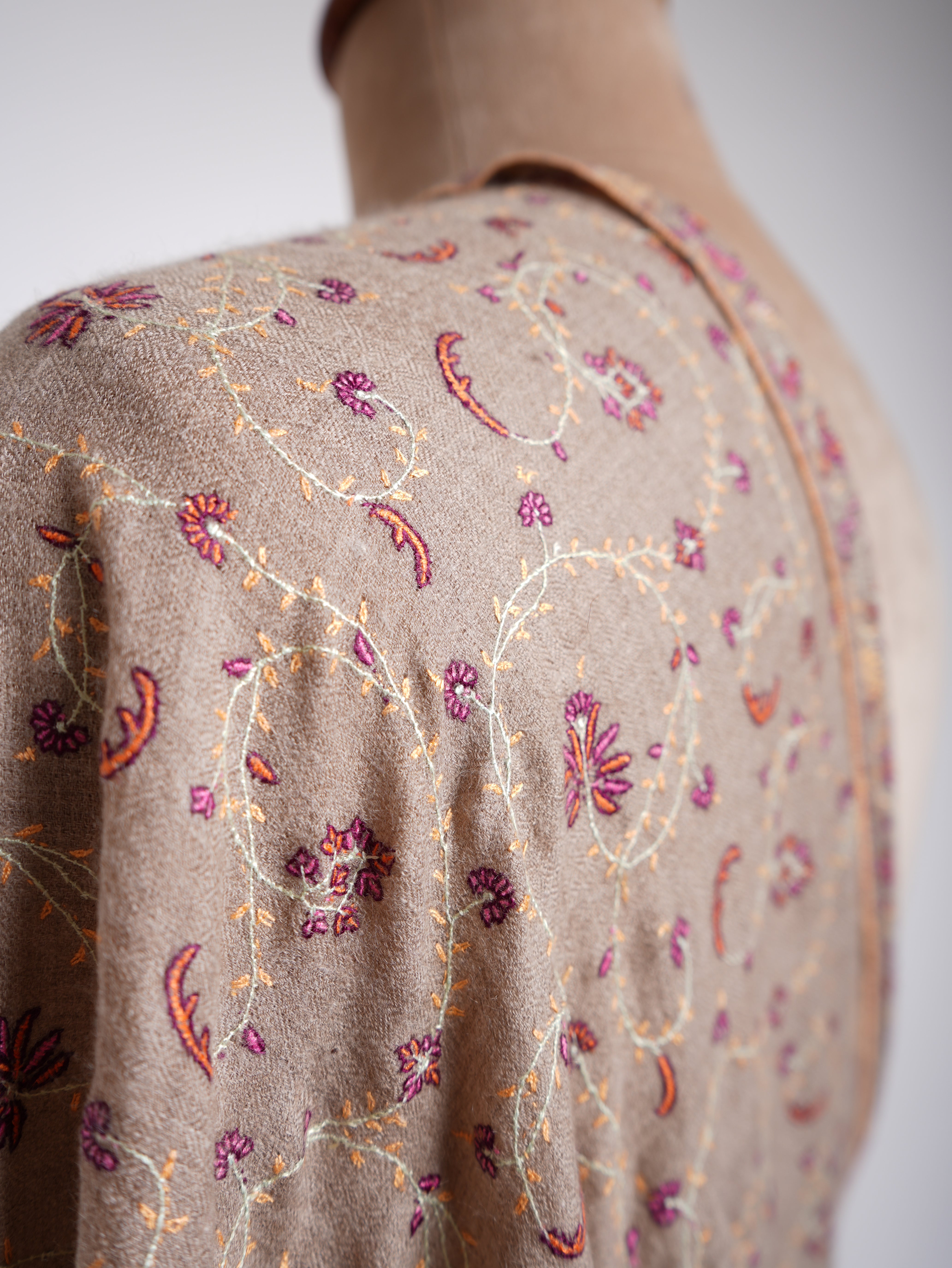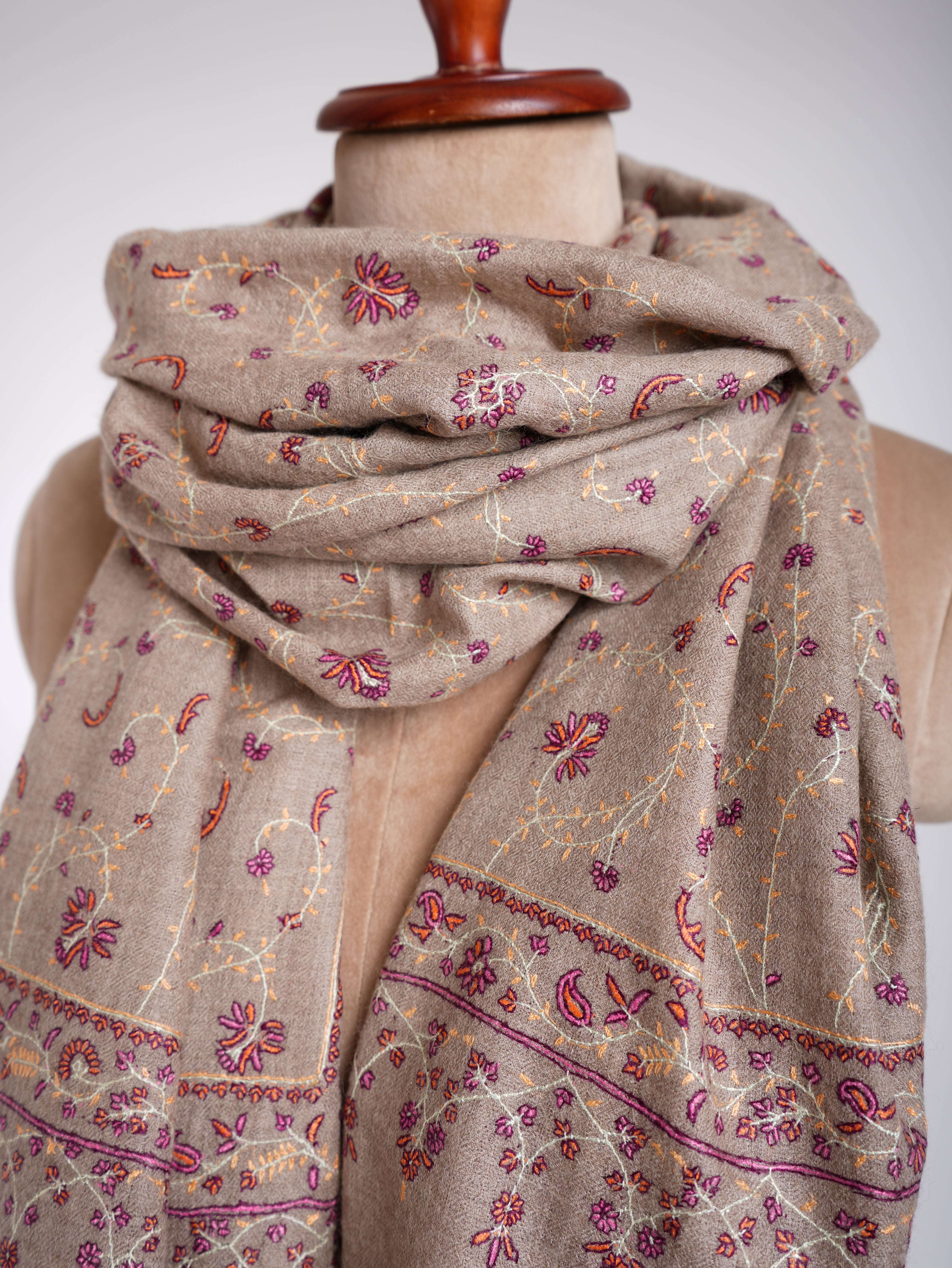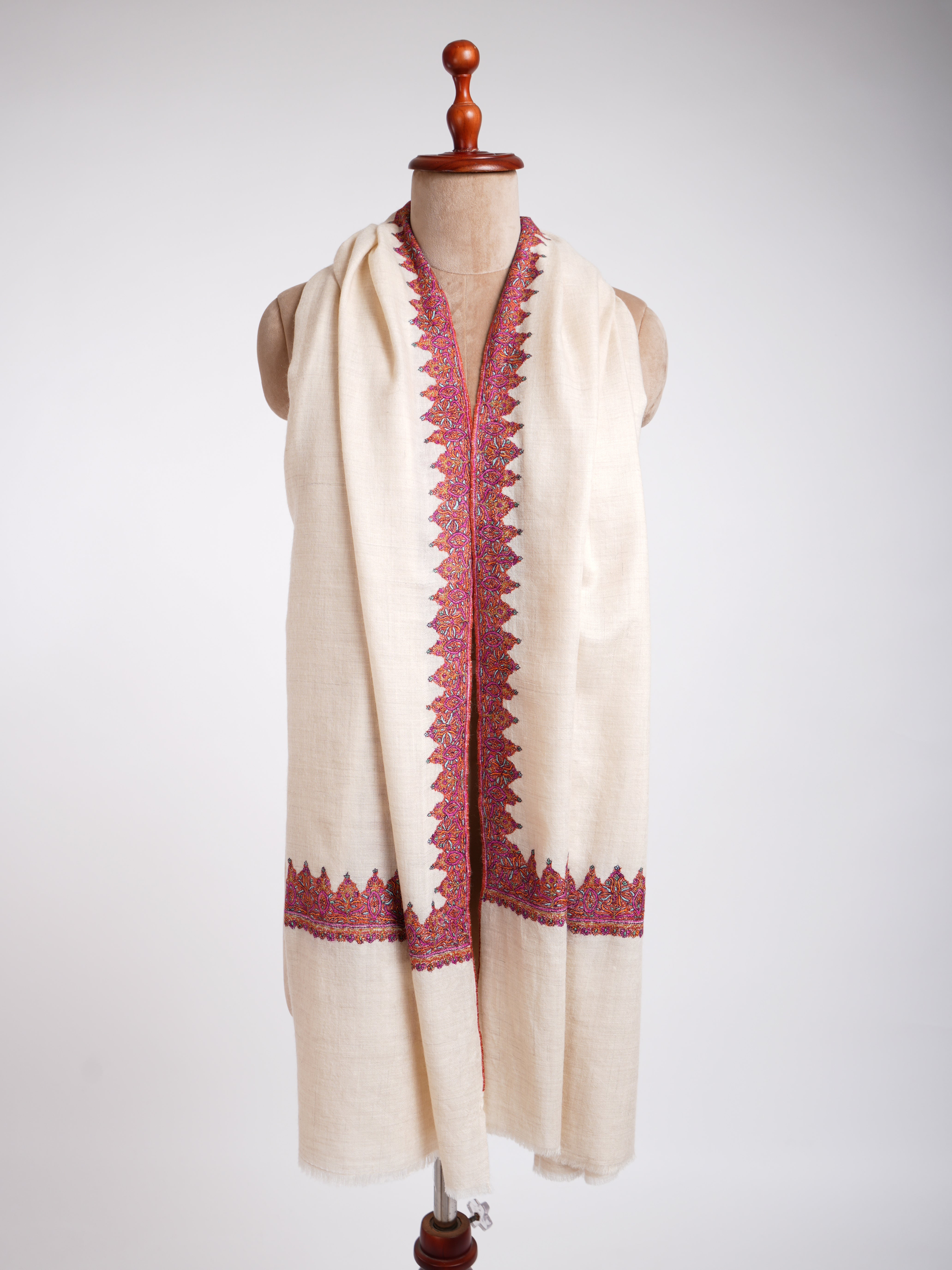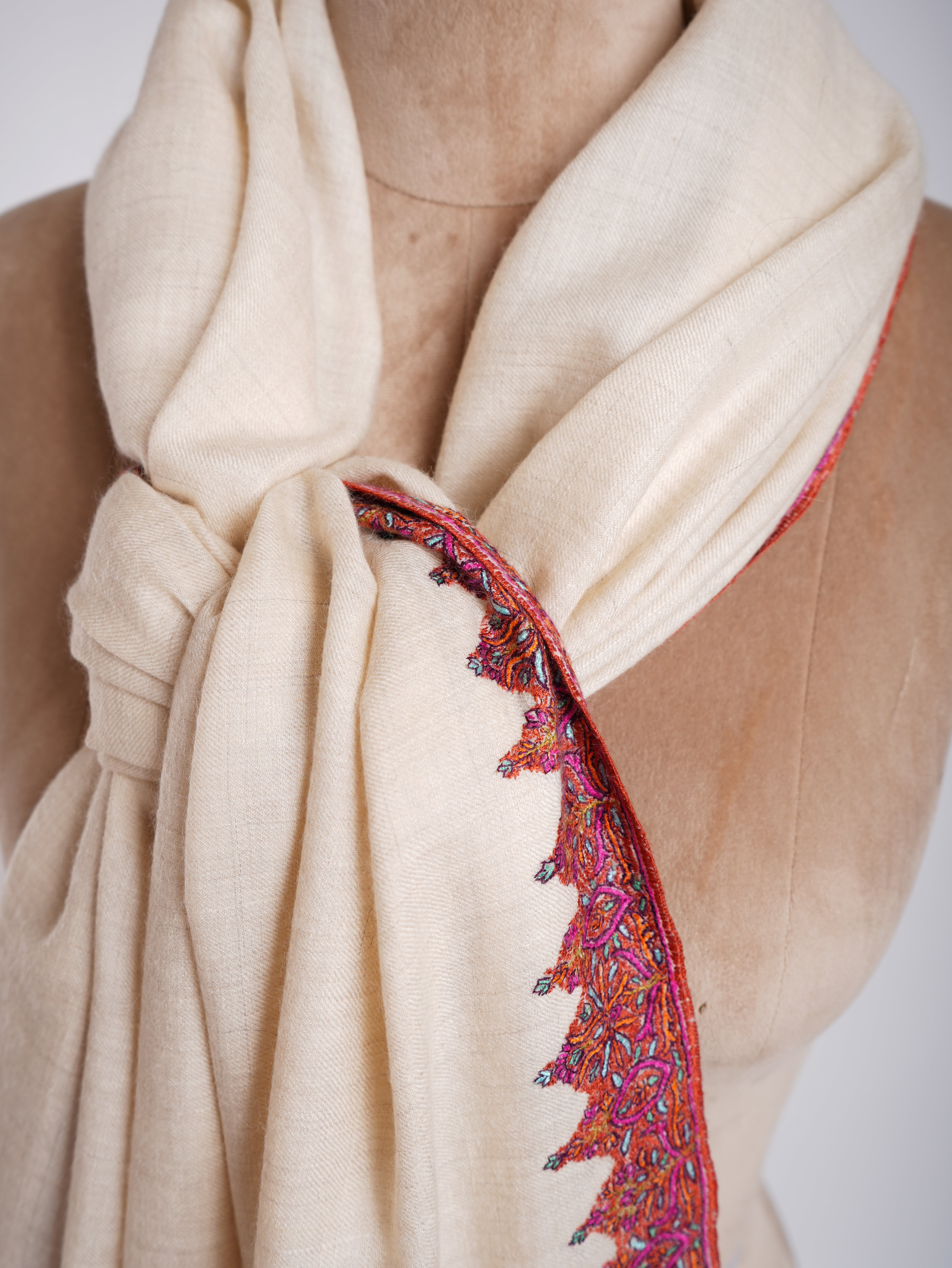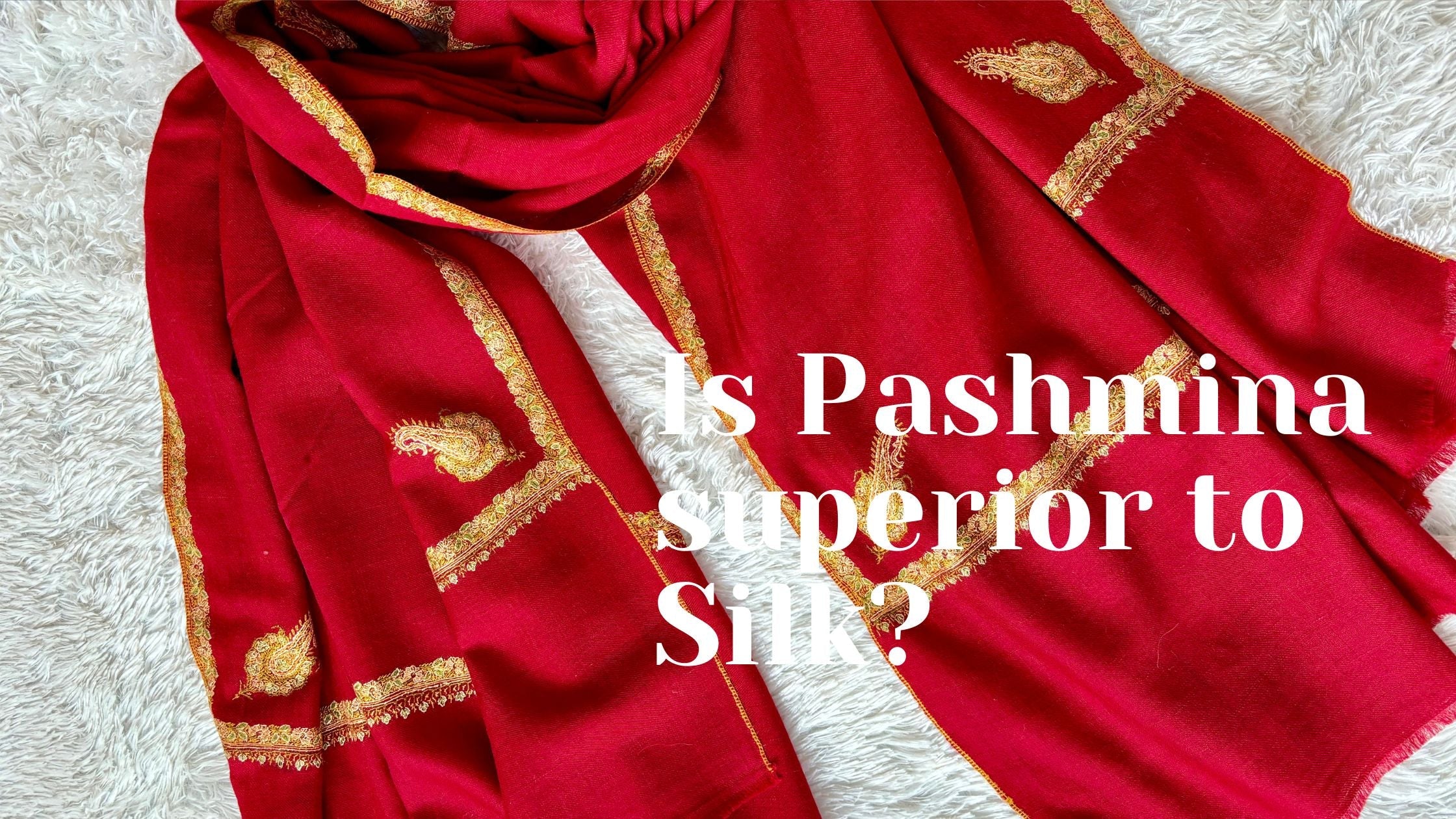
Ist Pashmina besser als Seide ?
Wenn es um luxuriöse Stoffe geht, fesseln nur wenige die Sinne so wie Pashmina und Seide. Diese beiden Materialien werden seit langem mit Opulenz, Eleganz und einem Hauch von Luxus in Verbindung gebracht. Aber die Frage bleibt: Ist Pashmina wirklich besser als Seide oder sind ihre einzigartigen Eigenschaften für unterschiedliche Vorlieben und Anlässe geeignet? Lassen Sie uns in die Debatte eintauchen und die besonderen Merkmale erkunden, die diese Stoffe voneinander unterscheiden.
Die Ursprünge: Erbe vs. Natur
Pashmina, oft auch als „weiches Gold“ bezeichnet, stammt aus der Himalaya-Region Kaschmir, wo erfahrene Handwerker seit Jahrhunderten die Kunst des Webens dieser zarten Wolle perfektionieren. Der Name „Pashmina“ selbst leitet sich von den persischen Wörtern „pashm“ (Wolle) und „na“ (Stoff) ab. Pashmina-Wolle wird aus dem Unterleib von Himalaya-Ziegen gewonnen und ist für ihre außergewöhnliche Weichheit, leichte Wärme und luxuriöse Haptik bekannt. Jeder Pashmina-Schal ist ein Zeugnis des Erbes und der Handwerkskunst des kaschmirischen Volkes.
Seide hingegen ist eine Naturfaser, die aus den Kokons von Seidenraupen gewonnen wird. Der Prozess der Seidenproduktion, auch als Seidenraupenzucht bekannt, hat seine Wurzeln im alten China. Seide wird für ihr glänzendes Aussehen, ihre glatte Textur und ihren natürlichen Glanz geschätzt, der Eleganz ausstrahlt.
Die Textur: Erhabene Weichheit vs. luxuriöse Glätte
Die Textur von Pashmina ist sein bestimmendes Merkmal. Die feinen Fasern der Wolle verleihen eine unvergleichliche Weichheit, die sich wie eine sanfte Liebkosung auf der Haut anfühlt. Pashmina-Schals und -Tücher werden für ihre Fähigkeit geschätzt, Wärme zu spenden, ohne aufzutragen, was sie ideal für kältere Jahreszeiten und klimatisierte Umgebungen macht.
Seide hingegen bietet eine glatte und geschmeidige Textur. Ihre reflektierende Oberfläche erzeugt ein Lichtspiel, das zu ihrem glamourösen Aussehen beiträgt. Seidenkleidungsstücke fallen wunderschön und fühlen sich luxuriös an, was sie zu einem Favoriten für formelle Anlässe und als luxuriöse Loungewear macht.
Wärme und Atmungsaktivität: Gemütlicher Komfort vs. kühle Eleganz
Die isolierenden Eigenschaften von Pashmina machen es zu einer ausgezeichneten Wahl, um bei kälterem Wetter warm zu bleiben. Seine Atmungsaktivität verhindert Überhitzung und macht es bei unterschiedlichen Temperaturen angenehm zu tragen. Die Fähigkeit von Pashmina, die Körpertemperatur zu regulieren, ist einer der Gründe, warum es von Menschen bevorzugt wird, die Wärme ohne das Gewicht herkömmlicher Wolle suchen.
Seide hingegen ist für ihre Atmungsaktivität und feuchtigkeitsableitenden Eigenschaften bekannt. Sie kann sich an unterschiedliche Klimazonen anpassen und bietet bei warmen Temperaturen einen kühlenden Effekt. Das leichte Gewicht von Seidenkleidung erhöht den Tragekomfort bei heißem Wetter.
Vielseitigkeit: Kulturelles Erbe vs. zeitgenössischer Glamour
Pashmina-Schals und Schals weisen oft komplizierte Muster auf, die der kaschmirischen Kultur und Kunstfertigkeit Tribut zollen. Die Webtechniken und Motive sind in das Gewebe der Geschichte der Region eingewebt, was jedes Stück zu einem Kunstwerk mit kultureller Bedeutung macht.
Die Vielseitigkeit von Seide liegt in ihrer Anpassungsfähigkeit an verschiedene Stile und Anlässe. Von eleganten Abendkleidern bis hin zu legerer Tageskleidung passt Seide mühelos zu verschiedenen Anlässen.
Fazit: Eine Frage der persönlichen Vorlieben
Ob Pashmina besser ist als Seide oder umgekehrt, hängt letztlich von individuellen Vorlieben, Bedürfnissen und dem Kontext ab, in dem diese Stoffe getragen werden. Pashminas Tradition, seine erhabene Weichheit und seine Fähigkeit, leichte Wärme zu spenden, sind überzeugende Faktoren für diejenigen, die zeitlose Eleganz mit kulturellem Touch suchen.Gleichzeitig sprechen die luxuriöse Textur, der Glanz und die Vielseitigkeit von Seide diejenigen an, die modernen Glamour lieben und nach einem Stoff suchen, der sich problemlos vom Tag in die Nacht tragen lässt.
Letztendlich haben sowohl Pashmina als auch Seide einen besonderen Platz in der Welt der Luxustextilien und bieten eine Fülle von Optionen für diejenigen, die die feineren Dinge des Lebens zu schätzen wissen. Ob in der reichen Geschichte von Pashmina oder im modernen Reiz von Seide, eines ist sicher: Beide Stoffe haben sich ihren geschätzten Platz im Reich der anspruchsvollen Mode verdient.


